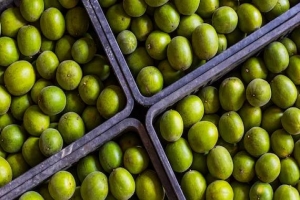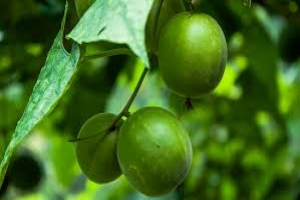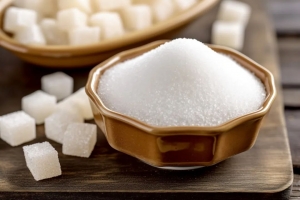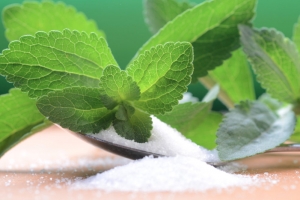In recent years, various beverages featuring 0 sucrose have swept the market and become the new favorite of sugar control people. Can it really fulfill the wish of "eating sugar freely"?
About sugar substitutes
In 1879, United States scientists invented sodium saccharin, and the concept of sugar substitute came into being. With the development of extraction and synthesis technology, the types of sugar substitutes are becoming more and more abundant, which are mainly divided into three categories: sugar alcohols, natural sweeteners and artificial sweeteners.
●Sugar alcohols are low-digestible compounds obtained by reducing the aldehyde or ketone groups on sugar molecules to hydroxyl groups. ● Most of the natural sweeteners are plant extracts. ●Artificial sweeteners are chemically synthesized or semi-synthetic organic compounds with high sweetness, low calorie and heat stability.
After more than 100 years of development, sugar substitutes have been widely used in the food processing industry, China's "Food Additives Use Standard" (GB2760-2014) also agreed on the types of sugar substitutes that can be used for food processing, mainly divided into 3 categories: sugar alcohols (xylitol, erythritol, sorbitol and sorbitol liquid, lactitol, maltitol and maltitol liquid, D-mannitol and isomaltulose), natural sweeteners (steviol glycosides, mogrosides, glycyrrhizin and thaumatin) and artificial sweeteners.
Advantages of sugar substitutes
▲Low energy: natural sugars (such as sucrose, glucose and fructose) have a calorie of 16.74kj/g. Common sugar substitutes on the market have the characteristics of providing no or only few calories and high sweetness. The Scientific Consensus on Food Sweeteners (2022) states that cyclamate, acesulfame potassium, sodium saccharin, sucralose, and steviol glycosides produce almost zero calories; Aspartame produces 12.56~16.74kj of calories per gram, but its sweetness is 200 times that of sucrose, under the same sweetness, the dosage is very small, and the calories produced are negligible; sugar alcohols produce 6.70~10.88kj of calories per gram, of which erythritol only produces 0.879kj of calories per gram, but they almost do not participate in metabolism after entering the human body, and the calories absorbed by the human body are very low.
▲Improving the sensory performance of beveragesSome sugar substitutes can not only replace the sweetness of sucrose, but also increase the flavor of specific beverages and improve the sensory characteristics of beverages. Compared with the addition of sucrose, acesulfame potassium, steviol glycosides and mogrosides to black tea and plain yogurt, respectively, could highlight the original bitterness of black tea and reduce the stimulation of yogurt sweetness. Adding steviol glycosides and mogrosides to chocolate milk can bring out the original bitterness of chocolate. The addition of Monk fruit glycosides to probiotic yogurt significantly increased the logarithmic content of Lactobacillus casei and Lactobacillus Bulgaria, resulting in higher sensory attribute scores.
▲Excessive intake of sugary beverages is one of the risk factors for tooth decay, and most sugar substitutes cannot be effectively used by oral bacteria, producing less acid by-products that corrode teeth. Xylitol and erythritol play an important role in preventing tooth decay by reducing saliva flow and plaque acid to inhibit the number of bacteria in the mouth. The effects of four artificial sweeteners (acesulfame potassium, aspartame, sodium saccharin and sucralose) on biofilm-induced caries potential showed that the four artificial sweeteners inhibited the growth and acid-producing capacity of Streptococcus mutans and Streptococcus haemoides in the oral cavity, and reduced biofilm formation compared with sucrose of the same sweetness.
The potential effects of sugar substitutes on human health
●Obesity, while sugar substitutes are theoretically beneficial for weight control, their effectiveness as a long-term weight management strategy remains questionable. Studies have shown that sugar-substitute drinks may enhance cravings for sweets and beverages, which can lead to obesity. Studies have found that in the neural pathway sequencing, sweetness has a higher priority than addictive substances such as caffeine, and frequent consumption of sugar substitutes, its high-intensity sweetness may overstimulate the sweet receptors, so that the human taste can return to the infant state (limited tolerance to complex taste), and over time, the human body finds that foods with high satiety and low sweetness (such as apples, vegetables and beans) are not attractive enough, and foods with low sweetness cannot satisfy the sense of taste, increasing the desire for high-sweetness and high-energy foods, and reducing the overall quality of food intake, Leads to increased energy intake and weight gain.
●Diabetes mellitusIn recent years, the association between specific sugar substitutes and the development of diabetes has been found in population studies and in vitro and in vivo experiments, but the potential long-term health effects still need to be explored.
An animal experiment randomly divided 44 male rats into 2 groups, a normal diet group (12% of the energy intake comes from fat) and a high-fat diet group (60% of the energy intake comes from fat), and two weeks later, they were randomly divided into aspartame group again (daily intake of aspartame 5~7mg · kg-1, the dose is equivalent to people drinking 2~3 bottles of aspartame drink (330mL · bottle-1) per day) and drinking water group for 8 weeks, compared with the drinking group, Glucose tolerance was impaired in both the normal diet and high-fat diet groups in the experimental group, suggesting that long-term high consumption of aspartame may be a trigger for insulin resistance. Based on the existing evidence, high intake of sugar substitutes in non-diabetic populations can lead to an increased risk of diabetes, and more research support is needed to study the relationship between sugar intake and the occurrence and development of diabetes in diabetic populations.
●The effect of the gut microbiota sugar substitute on the gut microbiota may be related to its source. Natural sweeteners and sugar alcohol-based sweeteners interact with the gut microbiota to increase the diversity of beneficial gut microbiota, thereby preventing and combining the treatment of diseases associated with metabolic syndrome.
●Hypertension: Several studies have found a positive association between sugar-substitute beverage consumption and the risk of hypertension, although replacing sugar-sweetened beverages with sugar-sweetened beverages reduces sugar intake.

In 2023, a study of 4,147 people published in the journal Nature Medicine showed that erythritol was both associated with major adverse cardiovascular events and promoted thrombosis, and that people with higher levels of erythritol in their blood had an increased risk of major diseases caused by the heart. Sugar substitutes mainly have a negative impact on human hypertension and are prone to cardiovascular events, and the relevant mechanism is not clear for the time being, which may be related to appetite disorders and changes in intestinal flora.
●All-cause mortality: Excessive intake of sugar substitutes may increase the risk of premature death. A study of soft drink consumption and mortality in 10 European countries showed that those who consumed sugar-substituted beverages ≥ 500 mL ·-1 had a 1.26-fold risk of mortality <compared with those who consumed 250 mL ·-1 [64]. A 2020 meta-analysis of 4 prospective cohort studies with 665,000 people with a median follow-up of 19.7 years also showed that a 250 mL increase in sugar substitute beverage intake was associated with a 6% increased risk of all-cause mortality for every 250mL ·d-1.
The existing evidence shows that sugar substitute foods should not be simply regarded as an ideal substitute for sugary foods, and the public should be guided to correctly understand sugar substitutes and their effects on health, and it is also necessary to strengthen the research on new resource foods or new foods, hoping to find foods that can reduce the health hazards of added sugar without introducing more potential harms.
 The regulation of Monk Fruit Extract (also known as Luo Han Guo extract) varies across different cou
The regulation of Monk Fruit Extract (also known as Luo Han Guo extract) varies across different cou
 Health Canada Approves Monk Fruit Extract as a Natural Sweetener
Health Canada Approves Monk Fruit Extract as a Natural Sweetener
 New Breakthrough in Allulose: A Healthier Sugar Alternative Gains Momentum
New Breakthrough in Allulose: A Healthier Sugar Alternative Gains Momentum
 Understanding Reb-M: The Benefits of a Next-Generation Sweetener
Understanding Reb-M: The Benefits of a Next-Generation Sweetener